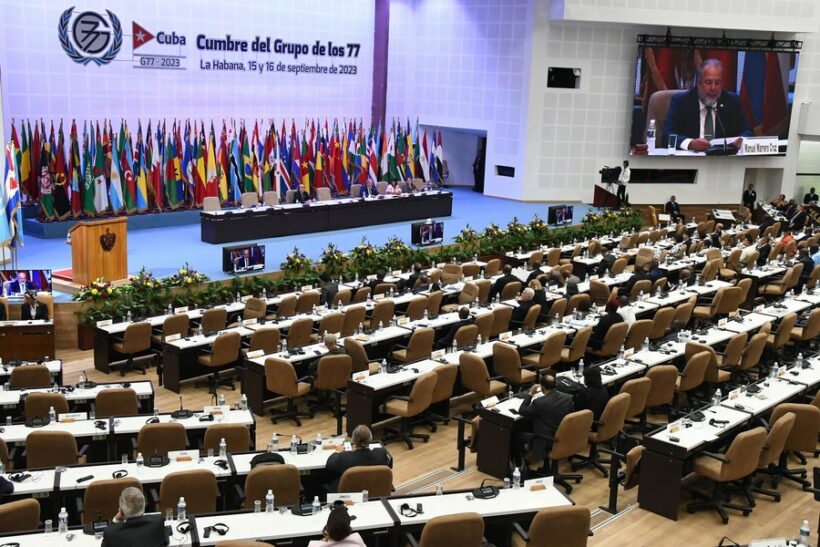The participants in the Group of 77 plus China Summit, which begins Friday in Havana, have drawn up several proposals for action, according to Rodolfo Benítez, director general of Multilateral Affairs and International Law at the Cuban Foreign Ministry.
Benítez explained to the press that these proposals include renewing the Consortium of Science, Technology and Innovation for the South, which, he said, will allow the promotion of joint research projects and foster productive linkages that reduce dependence on Western markets.
Another proposal aims to promote dialogue between scientific organisations in the South and to strengthen the codes and guidelines of the scientific and technological community, as well as to create technology platforms in different areas, including health, the environment and food security, among others.
In addition, the bloc intends to advance in the articulation of a network of universities and research centres that will strengthen the exchange of knowledge between member countries.
According to Benítez, it was also proposed that 16 September be declared the Day of Science, Technology and Innovation in the South, on the occasion of the date on which the Havana meeting concludes.
The Cuban diplomat highlighted the “great level of agreement” between the delegations in the diagnosis of the current international situation, as well as the “great convergence” in the identification of the possible actions required to confront the serious problems that affect sustainable development.
“There is agreement on the need to undertake an urgent and profound reform of the current archaic international financial architecture so that it is truly representative and addresses the legitimate demands of developing countries,” he said.
He stressed that a hundred delegations had registered to speak, which, he said, demonstrated the high level of interest in participating and intervening.
“The feelings of unity, solidarity and cooperation prevail,” he said.
The meeting is being attended by representatives from 114 countries, including 30 heads of state or government, as well as a number of senior officials from international organisations and agencies.
At the opening session, UN Secretary-General Antonio Guterres recalled the founding of the bloc 60 years ago and recalled the original purpose of “redressing centuries of injustice and neglect”, an idea, he said, that remains as important as ever.
He requested the bloc to use its voice to fight for a world that works for all and then highlighted Cuba’s role in the development of vaccines against the new coronavirus that allowed other peoples, victims of the inequalities of development, to confront the pandemic.
“The world is failing developing countries,” said Guterres, who called on the global financial architecture to be more responsive to the needs of developing countries.










